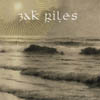Zak Riles
 Zak Riles' solo debut on Important forgoes the rock 'n' roll of Grails for the sake of more introspective fare. Sitting at a crossroads where psychedelic meditation, classical technique, and foreign intrigue meet, Riles concocts a breathy and sultry record littered with esoteric allusions and familiar ideas.
Zak Riles' solo debut on Important forgoes the rock 'n' roll of Grails for the sake of more introspective fare. Sitting at a crossroads where psychedelic meditation, classical technique, and foreign intrigue meet, Riles concocts a breathy and sultry record littered with esoteric allusions and familiar ideas.
As a member of Grails, Riles' guitar exercises often blend the excitement of spaghetti western soundtracks with something more enigmatic. Hints of music from the Middle East and other misunderstood parts of the world illicit a sense of wonder, especially when they're used effectively by a rock band. It adds a touch of mystery and danger to the music because the imagination of the western listener is still caught up in the fanciful depictions of an exotic culture. Despite years of cultural contact, PBS specials, and Hollywood abuse, the eastern world remains mostly impenetrable. So when Riles elicits that world through references to its religious, popular, and historical music, he simultaneously conjures up an air of the unknown. This kind of aping can be found in all kinds of music and, as bands like Gang Gang Dance have proven, it can be used to hide an embarrassing lack of creativity or ingenuity. For Riles it is one effective tool among many; among the smokey oud passages and gong crashes one will find the familiar and tangible sounds of American psychedelic music and the meandering guitars of the Fahey tradition.
The record follows a distinct arc. It begins out in the open air and descends into dark and foreboding places before re-emerging into daylight at the end. "Pacific Siren" begins with the sampled sound of the beach. The music, once it starts, calls to mind the legend of Blind Joe Death and the simple, sometimes sunny songs to which his talent was attributed. Riles' guitar rambles to and fro with bright chords on this particular song, the wave-like plucking definitely recalling the sound of the ocean crashing against the beach. This music is firm and grounded to the earth and often reminds me of hot, lazy summers spent staying cool. From there the character of the record changes and punchy rhythms collide with more exotic instrumentation. Moaning violins, a harpsichord, and long, winding electric guitars pass in and out of each other and replace the familiar with something both darker and less earthly. The saz and the oud become the primary instruments during the middle portion of the record and the melodies developed therein become longer and looser. The record takes an epic tone at points, especially when Riles pulls every instrument out of the bag that he can. On "Before the Refuge" tribal drums pound away beneath electric freak-outs and violas hum over sharply curving acoustic passages that sound as though they're aching to leave the material world.
Eventually the intensity of the record reaches its peak and Riles returns to the place where he started. While "Slack Key" is a partial blend of the two styles that dominate the record, "Chloe" is nearly a complete rock 'n' roll song. With the sound of thunder interrupting the song in places, a strummed guitar and an electric solo combine to create a sensation of alleviation. The song's weightlessness dissolves into the sound of crickets and rain before the record fades out entirely. Given the album's cinematic progression, it's tempting to think of Riles' work as a cinematic accompaniment, but the record is complete unto itself and works towards its own end. That end may not necessarily be transcendent in intent, but the upwards trajectory of the album's second half does call to mind the religiously centered themes of Popul Vuh and other similar bands. The addition of American folk music to the transcendent recipe is not a new idea (Robbie Basho was thinking about this in the mid '60s), but Riles incorporates it in his own unique manner and helps to affirm its potency outside the realm of academic appreciation and nostalgia.
samples:



